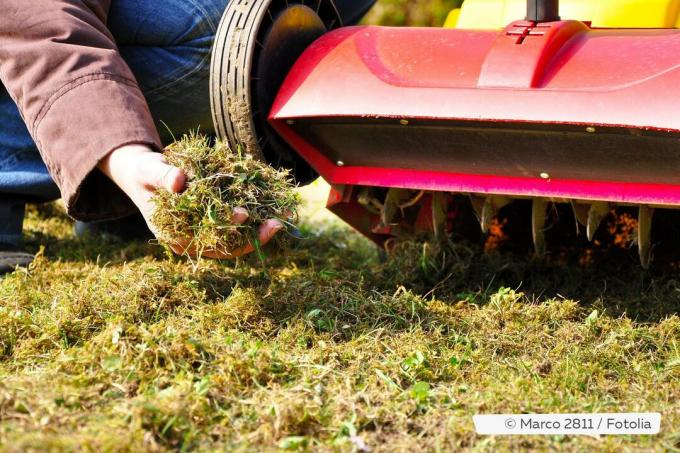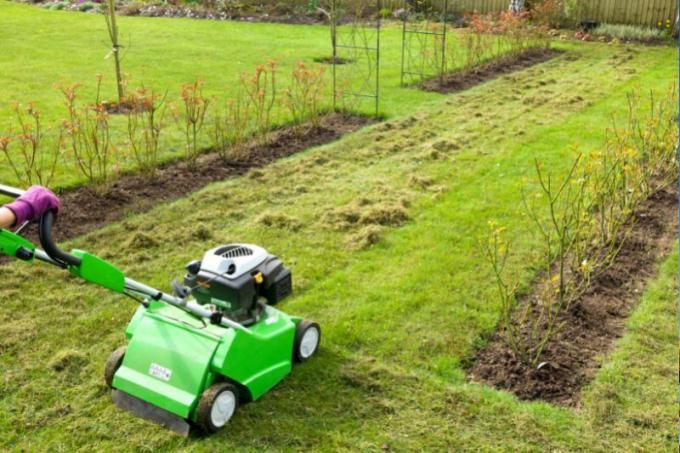
Scarifying is important to ensure that the lawn grows dense and healthy and that no weeds, moss or open areas develop. How deep, however, is not always clear. The following article provides information on what depth is ideal for this type of gardening.
In a nutshell
- Scarifying depth depends on various factors
- Knives should only scratch the ground lightly
- The turf must not be damaged
- a depth of two to three millimeters is ideal
- Before scarifying, test and readjust the depth on a short piece
Table of contents
- Important factors for depth
- Ideal depth when scarifying
- Avoid possible damage
- frequently asked Questions
Important factors for depth
If the Lawn area scarified then here are some important factors for the depth that should be set:
- age of the lawn
- Intensity of felting
- type of lawn

A notice: You can find a wide variety of varieties on the market. From robust playing turf to delicate English turf. The depth must also be chosen accordingly.
Ideal depth when scarifying
There is an ideal depth for scarifying a lawn. This is always in a range of two to three millimeters. Because not all lawns are the same, there may be differences in depth. Note:
- Turf must not be destroyed
- ideally, the turf is only gently touched
- scratching the ground with the knives must be avoided
Tip: After the unit has been set to a depth, it is advisable to test a short distance and then adjust the setting if necessary.
Avoid possible damage
In order for the lawn to grow back properly after airing, it is important to avoid further damage in addition to the depth:
- do not scarify wet areas
- set depth then irrelevant
- Knife roller rotates
- lifts moist soil
- Grass roots are always damaged
- Only scarify young lawns after three years
- always at most twice a year
- ideal in spring and autumn

Even when it is very hot, as can occur in spring and autumn, you should not scarify, as this can also mean too much stress for the grass.
frequently asked Questions
If the lawn has already grown very wildly, then a depth of up to four millimeters is allowed to scarify the area. At a very mossy lawn you can set the maximum depth of five millimeters.
Various lawnmowers with a built-in scarifier are commercially available. If you also pay close attention to the setting for the depth for scarifying and for the lawn clippings, then these mowers are a good relief and help for de-aerating and Mowing. Many devices offer the setting to switch the scarifier on or off.
In fact, the electric scarifiers do not always fit in every corner. A manual scarifier can help here. With it weed and moss are also caught, the pressure on the scarifier is important. The higher this is, the deeper the scarifying.
If the scarifier is set too low, it will touch the roots of the grass. These can be damaged or even torn out. Then there are holes in the lawn. On the other hand, if the scarifier is not set deep enough, moss and weeds not removed and the area must be scarified again.


